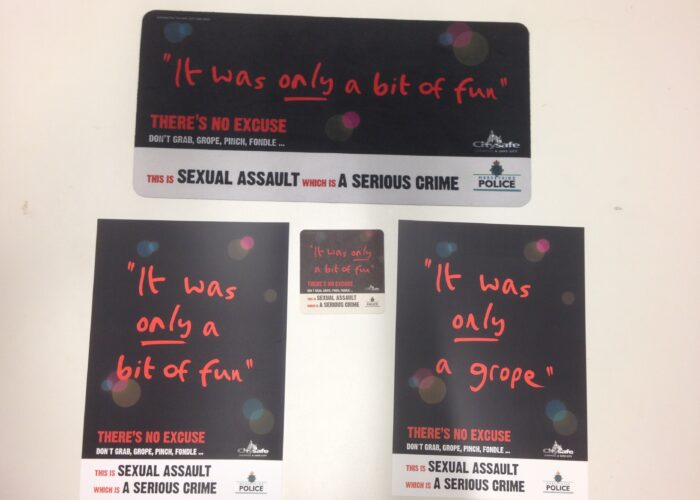
New research at LJMU could change the way in which inappropriate sexual behaviour is tackled.
The research is being conducted by senior lecturer in the school of law, Stuart Taylor, who intends to gather the views of males and females aged 18-24 regarding inappropriate sexual touching in the night-time economy, including everything involved in nights out, including pubs, bars and clubs.
He told JMU Journalism: “This is the second part of our campaign. The last element in 2012 focused on the issues of rape and sexual consent. However, the issue of inappropriate touching doesn’t get as much attention. It’s more widespread.”
He added: “It certainly hasn’t harvested a great deal of focus in academic spheres as well as policy.”
Whilst many people might associate promiscuous behaviour with a night out, Taylor emphasised that people might sometimes fail to notice when a line has been crossed.
He explained: “We have a society that encourages hyper-sexuality, with dancing poles in night time venues, and other such things. Arguably, sexual touching is conceived as a less serious offence, and in legal terms it lacks clarity. People might say that it’s only a bit of fun, but it isn’t just that, it’s sexual assault.”
He added: “We’re trying to put it into the public domain, clarify the law and promote public confidence. Hopefully, we’ll get people thinking and help them recognise criminal behaviour and get them to report it and act accordingly.
He said the research could play a role in shifting cultural perception of such behaviou.
“It’s difficult to change entrenched attitudes. If we’re to challenge these, it takes more than some of the high-profile cases we’ve seen, though these may prompt people to think,” Taylor said.

The varying attitudes towards of such behaviour can differ in many ways, including between venues, according to Taylor
“This is part and parcel of some people’s experiences. At certain venues the level is different. What’s seen as unacceptable in a quiet pub, for instance, might be viewed otherwise in a nightclub,” he explained.
With participants in the research being divided into same-sex groups, Taylor hopes to collect a wide range of perspectives. He also hopes that the research could also help to inform law and policy reforms.
He added: “We’re starting on a local level, and have bodies such as the Centre for Public Health and the local government involved in these areas. It’s all about taking the research to forums and making it heard. It’s no good staying in the office, this is how we afford change as academics.”
If you are interested in participating in the research, contact [email protected]. Participants will receive a £20 voucher to acknowledge time and any travel expenses will be covered.

